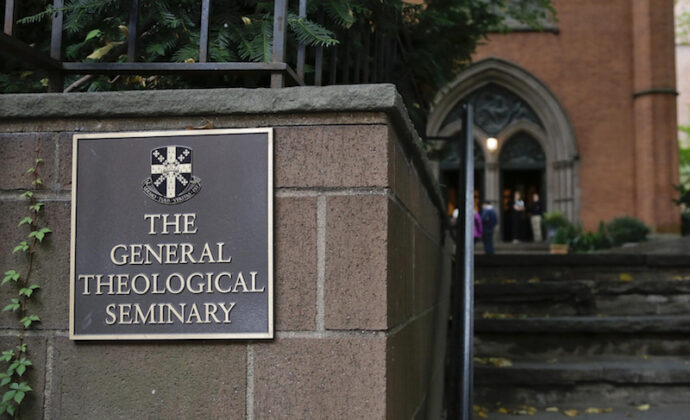For more than twenty years I’ve supported workers who exercise their rights to organize to improve conditions in their workplaces. Workers care about their wages and benefits, but what usually moves workers to organize is either concern about their clients, concern about how they are treated, or both.
Religious workers who organize are no different. The General Theological Seminary (GTS) faculty organized out of concern for their students, the seminary and a voice in the workplace.
The heavy handed retaliatory response by the clergy-dominated Board of the Seminary, first firing them and now giving them provisional rehiring, replicates how many employers respond to workers who organize for a voice in the workplace. What makes this situation unusual is that it’s a religious institution and there are clergy on both sides.
It’s easy to get lost in the details of any situation—and there are lots of details in this one—but the core facts are clear.
- The faculty has serious concerns about the dean and his leadership. For eight out of eleven faculty members to even send a letter expressing concerns is serious. Faculty members are known for their individualism. They seldom have much experience in collective action. They are used to long meetings and lengthy dialogues. For them to decide to go on strike for one day (and remember the strike was on a day without classes) is remarkable. Things must have been pretty serious.
- The board disregarded faculty concerns. The board did not want to meet with the faculty. It hired a management-side law firm to investigate. It issued a statement saying it stood behind its dean. The board sent a clear message to the faculty that its concerns were not a priority.
- The board fired the faculty members when they replied. When the faculty members expressed concerns that they could not work with the dean, the board fired them. No one really believes that these faculty members had offered their resignations. For the Board President to suggest such is disingenuous.
- Replacement workers were hired. The Board of Directors brought in replacement workers to teach classes.
- The board offered to rehire the faculty and renegotiate terms with each person individually. Under the guise of generosity, the Board of Directors proposed to undercut the collective concerns, destroy tenured positions and renegotiate short-term contracts with each person. Really?
- The faculty members accepted provisional jobs and agreed to a process in order to save their jobs. Like companies that threaten to close down when workers organize, or management that retaliates against workers who speak up, this board used all its power to bully and intimidate these workers. Putting faculty members all on a provisional basis is clearly retaliation for organizing.
This situation represents a clear denial of workers’ rights to organize and engage in collective bargaining and retaliation for workers’ exercising those rights. The Episcopal Church has clear principles supporting workers rights to organize and engage in collective bargaining. But somehow, they don’t seem to apply here.
For the last two months, Episcopalians across the nation had expressed their outrage. Thousands had signed a petition to the Presiding Bishop urging her to intervene. GTS students had organized prayer vigils. A few courageous bishops had issued statements supporting the GTS faculty, referred to as the GTS8.
The Board of Directors had backed itself into a terrible corner and few of us like to admit we are wrong. This is especially true for many clergy and bishops who believe they are not only right but empowered by God in their rightness. (Ask any union organizer who has negotiated with a religious hospital.)
Regardless of the particular issues of concern, the style in which they were presented or the various policies of the institution, this is essentially a labor dispute. Workers, the faculty members, wanted a voice in how they and students were treated. They organized to have a voice. They went on strike. They got fired. Replacement workers were hired. The management then offered to rehire the workers provisionally and the workers, under enormous duress, agreed to the conditions in order to save their families’ economic livelihoods.
This is a labor dispute. I know which side I’m on.


